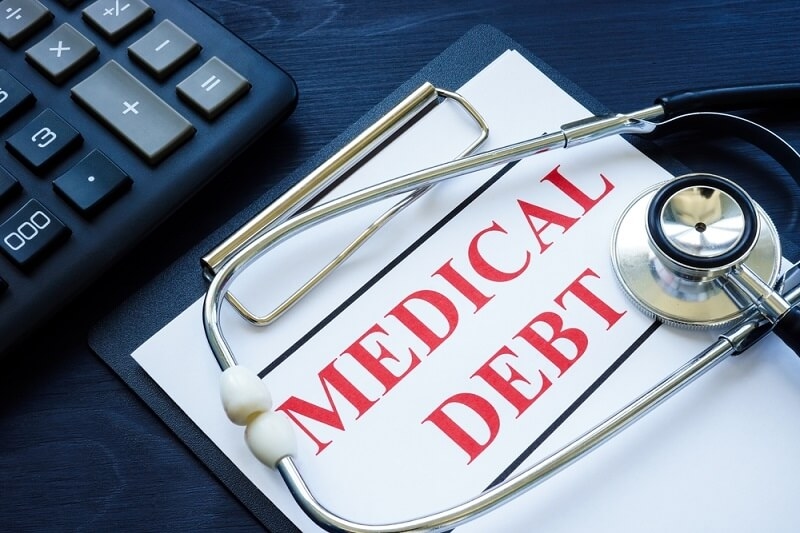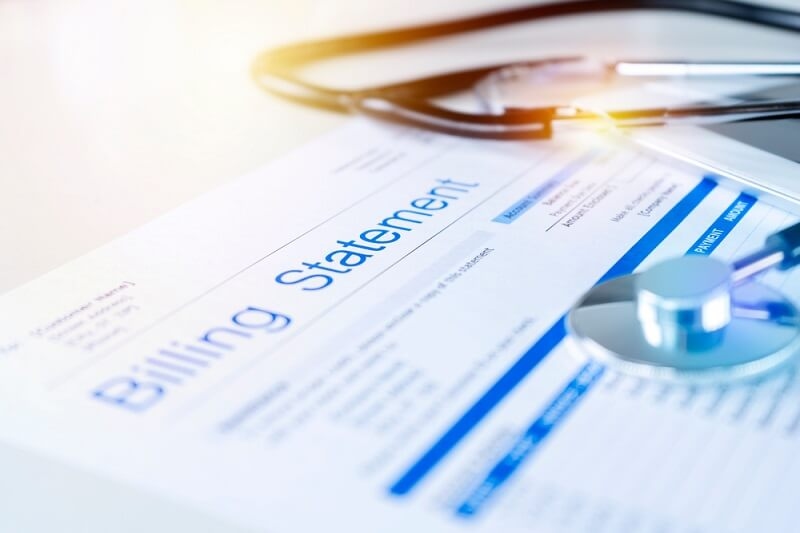
If you've ever opened a hospital bill and felt overwhelmed, you're not the only one. Millions of Americans battle escalating healthcare costs each year, and some find themselves wondering: What is medical debt, and how do I manage it? From everyday doctor visits to life-saving surgeries, medical bills can multiply fast. Add confusing statements, insurance coverage gaps, and high deductibles, resulting in stress lingering long after the treatment ends.
In an effort to alleviate that weight, it's critical to prioritize comprehending medical bills in clear terms, your rights, and available hospital debt choices. This handbook dissects medical collections defined in plain language, offers practical tips for medical debt payment, and provides a credible medical bill negotiation handbook to assist you in taking charge without undue stress.
Fundamentally, medical debt is an unpaid balance you have for medical services. That can be hospitalization, a trip to the outpatient department, lab work, medication, or even a ride in an ambulance. Medical debt differs from other types of debt, such as personal loans or credit cards, in that it is frequently unanticipated. No one plans on a car crash or illness, but the financial legacy can be daunting.
Here are some things to know about medical debt:
Defining medical debt is half the battle in managing it with less stress. Knowing the fundamentals, you can negotiate repayment confidently.
One of the primary sources of medical debt isn't the cost itself—it's the complexity of billing. Reading medical bills can be like reading a foreign language. Patients frequently get several statements from various providers for a single procedure.
Top reasons bills are confusing:
Tip: Always ask for an itemized bill. This action can uncover duplicate charges, mistakes, or services your insurance should have covered.
If your bill goes unpaid, it could be sent to collections. Here's medical collections in layman's terms:
When buried under medical bills, remember that you're not without options. Hospital debt alternatives are available to allow patients to manage costs better:
Numerous hospitals, particularly nonprofit hospitals, are mandated to offer financial assistance to qualifying patients based on income. You might need to provide tax returns or pay stubs, which could significantly lower or even eliminate your bill.
Rather than huge lump sums, hospitals will frequently permit monthly payments in accordance with your income.
Though not the best option, specialized credit lines can be useful if you must pay out of pocket. Those can, however, come with extremely high interest rates if paid late.
Some hospitals will take an installment if you pay the remainder promptly. For example, they may take $3,000 on a $5,000 bill if you pay it in cash.
Seeking hospital debt options early can help avoid sending your account to collections.

Negotiation can be daunting, yet it is one of the best weapons in your wallet. Try this easy medical bill negotiation step-by-step guide:
Pro Tip: Negotiate calmly and politely. Billing reps are more likely to assist if you approach them as collaborators rather than opponents.
If you can't pay the full amount at once, these medical debt repayment tips will help make it more manageable:
The secret to managing stress is knowing and adhering to a clear repayment plan.
While medical expenses are not always avoidable, some measures can minimize your chances of future debt:
Proactive measures can save thousands of dollars on surprise bills.
Aside from the dollars, medical debt may bear down on mental well-being. Ongoing calls, mail, and credit concerns evoke worry, insomnia, and even depression. Reaching out for assistance—whether to financial advisers, patient advocacy groups, or encouraging family support—can alleviate the psychological strain.
Just know that you are not alone. Many millions of people are dealing with the same situation, and some strategies can help you move forward.
So, what is medical debt? It's a financial burden that results from unpaid medical bills—but it doesn't have to take over your life. You can regain control of your money and sanity by learning about medical bills, how medical collections work, hospital debt options, and medical debt repayment strategies, and utilizing a step-by-step medical bill negotiation guide.
The key is acting early, being educated, and never being afraid to ask for help. With an approach like this, you can tackle your medical debt without undue pressure and, most importantly, your stress and health.
This content was created by AI